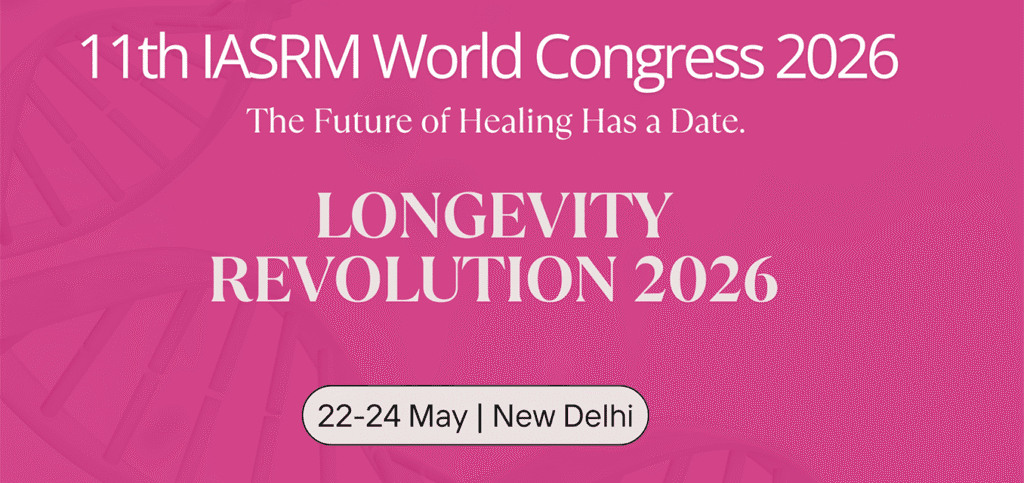Unlocking a Career in Reproductive Medicine: The Power of a Fellowship
The field of reproductive medicine is a dynamic and rapidly evolving specialty that addresses the complex challenges of infertility, reproductive endocrinology, and assisted reproductive technologies (ART). For medical professionals aspiring to specialize in this rewarding domain, a Fellowship in Reproductive Medicine offers a transformative opportunity to gain advanced knowledge, hands-on expertise, and a competitive edge in the healthcare industry. This specialized training equips clinicians with the skills to navigate the intricacies of fertility treatments, hormonal disorders, and cutting-edge technologies like in-vitro fertilization (IVF), intrauterine insemination (IUI), and intracytoplasmic sperm injection (ICSI). Let’s explore why pursuing a fellowship in reproductive medicine is a pivotal step for aspiring specialists and how it shapes their careers.
What is a Fellowship in Reproductive Medicine?
A Fellowship in Reproductive Medicine is a postgraduate, specialized training program designed for medical professionals, typically obstetricians, gynecologists, or endocrinologists, who wish to deepen their expertise in reproductive health and infertility management. These programs, offered by leading medical institutions and fertility clinics worldwide, combine theoretical knowledge with practical experience. Fellows are trained in fertility evaluations, ART procedures, reproductive endocrinology disorders, and advanced diagnostic techniques. The duration of these fellowships typically ranges from one to three years, depending on the program and region.
The curriculum covers a wide array of topics, including ovulation induction, embryo transfer, cryopreservation, and the management of conditions like polycystic ovary syndrome (PCOS) and endometriosis. Trainees also gain hands-on experience in fertility clinics, working under experienced mentors to perform procedures like IVF and ICSI. Beyond clinical skills, fellows learn to address the emotional and ethical challenges patients face during fertility treatments, ensuring a holistic approach to care.
Why Pursue a Fellowship in Reproductive Medicine?
The demand for reproductive medicine specialists is on the rise, driven by increasing infertility rates and growing awareness of fertility treatments. According to the World Health Organization, infertility affects approximately 1 in 6 couples globally, creating a pressing need for skilled professionals. A fellowship provides several advantages:
- Specialized Expertise: Fellows gain in-depth knowledge of reproductive endocrinology and ART, enabling them to handle complex infertility cases with confidence. This expertise sets them apart in a competitive field.
- Hands-On Training: Programs emphasize practical experience, allowing fellows to perform procedures like embryo transfers and ultrasound-guided follicle aspirations. This hands-on training is critical for mastering the technical aspects of reproductive medicine.
- Research Opportunities: Many fellowships encourage participation in clinical research, fostering innovation in fertility treatments. Research experience also strengthens fellowship applications, as highlighted by experts like Drs. Victoria Jiang and Zach Walker from the American Society for Reproductive Medicine (ASRM). They emphasize aligning research projects with personal goals and leveraging existing databases for feasible studies.
- Career Advancement: Completing a fellowship opens doors to prestigious roles in fertility clinics, academic institutions, or private practice. It also enhances credibility, making fellows sought-after experts in reproductive health.
- Global Impact: Reproductive medicine specialists play a vital role in helping individuals and couples achieve their dreams of parenthood, contributing to societal well-being.
Challenges and Considerations
While a fellowship in reproductive medicine is rewarding, it is also demanding. The application process is highly competitive, with a match rate of around 61.5% for Reproductive Endocrinology and Infertility (REI) fellowships in 2023, compared to an 83% average for other subspecialties. Aspiring fellows must demonstrate strong academic records, research experience, and a passion for the field. For residents in smaller programs with limited research opportunities, experts suggest exploring collaborations with Maternal-Fetal Medicine or other REI-adjacent fields to build a robust portfolio.
The fellowship also requires emotional resilience, as working with patients facing infertility can be emotionally taxing. Fellows must balance technical proficiency with empathy, addressing patients’ psychological and ethical concerns. Additionally, some programs may have regional variations in training, such as limited opportunities for live embryo transfers, which can impact skill development.
How to Prepare for a Fellowship
To stand out in the competitive application process, aspiring fellows should focus on:
- Research Involvement: Engage in meaningful research early in residency, prioritizing projects that align with reproductive medicine.
- Networking: Attend conferences like those hosted by ASRM or the Society for Reproductive Endocrinology and Infertility (SREI) to connect with mentors and peers.
- Strong Letters of Recommendation: Secure endorsements from faculty who can vouch for your clinical and research capabilities.
- Interview Preparation: With many programs adopting web-based interviews, practice articulating your passion and experience clearly.
The Future of Reproductive Medicine
Advancements in ART, such as genetic screening and fertility preservation, are reshaping the field. Fellowships are evolving to include training in these cutting-edge technologies, preparing fellows for future challenges. Programs also emphasize diversity, equity, and inclusion to address gaps in reproductive care access, as highlighted by ASRM’s DEI Taskforce.
Conclusion
A Fellowship in Reproductive Medicine is a gateway to a fulfilling career, blending science, compassion, and innovation. It equips medical professionals with the tools to transform lives while advancing the field through research and clinical excellence. For those passionate about helping individuals build families, this fellowship is a worthy investment in both personal and professional growth. Aspiring fellows should start preparing early, leveraging research, networking, and mentorship to secure a spot in this competitive yet rewarding specialty.
